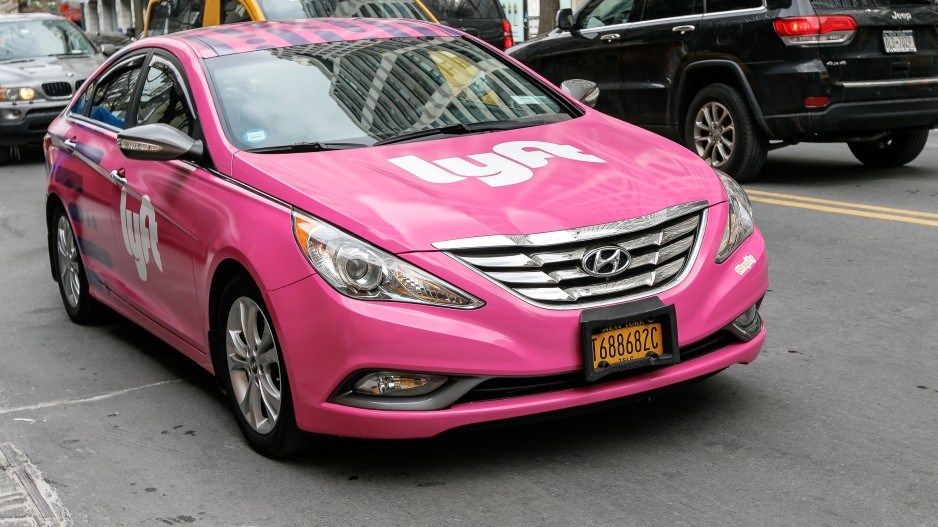There has never been an easier time to register a complaint. Two decades ago, negatively impacted consumers would leave messages in answering machines that were rarely acknowledged. In this century, these machines were displaced by e-mail addresses that automatically responded with a universal “Your feedback is important” message.
Now, social media allows us to be upset with things, and enable everyone we know to share in our unhappiness. One of the complaints that Metro Vancouverites have plastered all over Facebook and Twitter is the lack of transportation options after a night out. The “Where’s Uber?” messages that we are exposed to on Friday and Saturday nights in Metro Vancouver can also be accompanied by those of tourists or returning neighbours, who complain about long lines at the airport when trying to get into a taxi.
Discussions related to the presence of ride-hailing services, such as Uber and Lyft, have been a feature of British Columbia’s political scene for years. Most of the time, the debate – as happens too often in this province – has become tinted in political colours.
BC Liberal supporters will inevitably complain about the slow pace of the current administration in allowing ride-hailing services to operate in the province. BC New Democratic Party (NDP) supporters will predictably remember how the previous government was unable, or unwilling, to loosen regulations when it had the chance.
A survey conducted last weekend by Research Co. looked into specific issues related to the future of ride-hailing in Metro Vancouver. Across the region, 49 per cent of residents say the provincial government’s timeline to allow ride-hailing in the province – by the fall of 2019 – is “reasonable,” while a slightly smaller proportion (42 per cent) call this plan “unreasonable.”
Women (55 per cent), residents aged 55 and over (53 per cent) and voters who supported the BC NDP in the last election (59 per cent) are more likely to call the government’s timeline “reasonable.”
As expected, most BC Liberal voters from 2017 (52 per cent) think the wait is too long, and want to have ride-hailing sooner than a year from now. They are joined in this view by almost half of men (47 per cent) and millennial (ages 18 to 34) residents (also 47%).
Aside from establishing a starting date for these services to operate, two issues have been discussed at length over the past few days: how to establish who can operate the vehicles and figuring out just how many are needed on the road.
In the survey, a majority of Metro Vancouverites (57 per cent) expressed a preference for letting only people with a Class 4 license, which requires more training, a medical exam and security checks, to serve as drivers for ride-haling services. Only three in 10 (30 per cent) would let any person with a Class 5 license to operate a ride-hailing service.
Metro Vancouver’s millennials – who are more likely to need these services on any given weekend – are the only ones who believe a Class 5 license should be enough to work as a ride-hailer. All other demographics, including BC Liberal voters, are supportive of the Class 4 plan.
When it comes to congestion, other jurisdictions where ride-hailing has been in place for years are starting to take note. In August, New York City capped the number of ride-hailing vehicles with two important distinctions. In order to operate, new vehcles must serve an area where congestion does not increase, or would have to be wheel-chair accessible. The New York City plan effectively identified the needs of residents before determining where, and how, ride-hailing would grow.
Across Metro Vancouver, two-thirds of residents (66 per cent) agree with establishing a cap on the number of ride-hailing drivers to reduce traffic congestion. Just one in four (23 per cent) believe there should be no restrictions on the number of ride-hailing drivers, even if this creates traffic congestion. This presents a logistical challenge for the province. An assessment of the days and times in which these services will help and not hinder is desperately needed.
The message sent by Metro Vancouverites on this survey is complex. On the one hand, there is some dismay at how much time it has taken to figure out ride-hailing – an issue that is especially frustrating to millennials.
Aside from this pain point, a clear majority of residents believes a Class 4 license is the way to go for ride-hailing operators. And, as discussions related to the future of the region’s transit projects intensify, there are concerns about opening the door too wide and supplanting the problem of not having a ride with the problem of clogging our roads.




